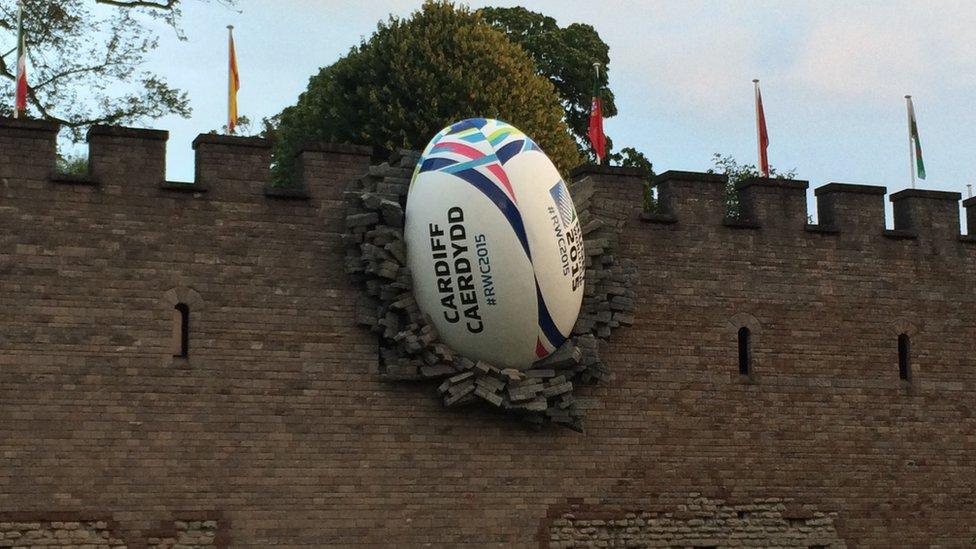First Great Western 'underestimated' rugby rail travel numbers
- Published
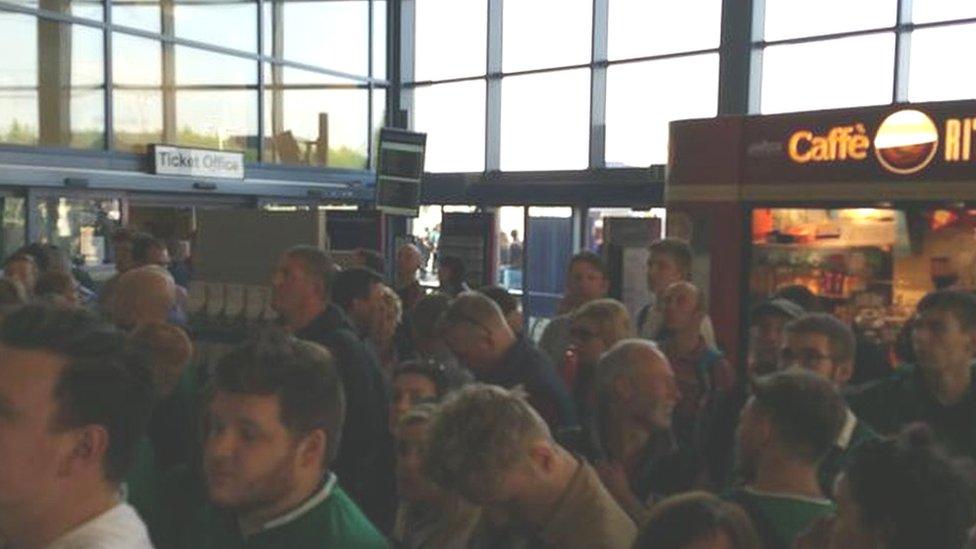
Passengers have been tweeting about overcrowding at Bristol Parkway
First Great Western has apologised for underestimating passenger numbers travelling to Cardiff for the city's first Rugby World Cup match.
In a tweet, the train operator acknowledged "severe overcrowding" at Paddington Station.
The company put on 8,000 extra seats for the Ireland-Canada game, which took place at the Millennium Stadium, but had to add 1,500 extra seats.
Passengers have reacted angrily with one describing it as "unforgivable".
Clive Sedgebeer tweeted: "@FGW It must have come as a great surprise to you that there is something going on in Cardiff. Just not good enough and unforgivable."
Cycleoptic responded: "Only 4 years notice!"
Sue Moran tweeted: "Stop selling the anytime tickets on match days - it's the same during six nations."
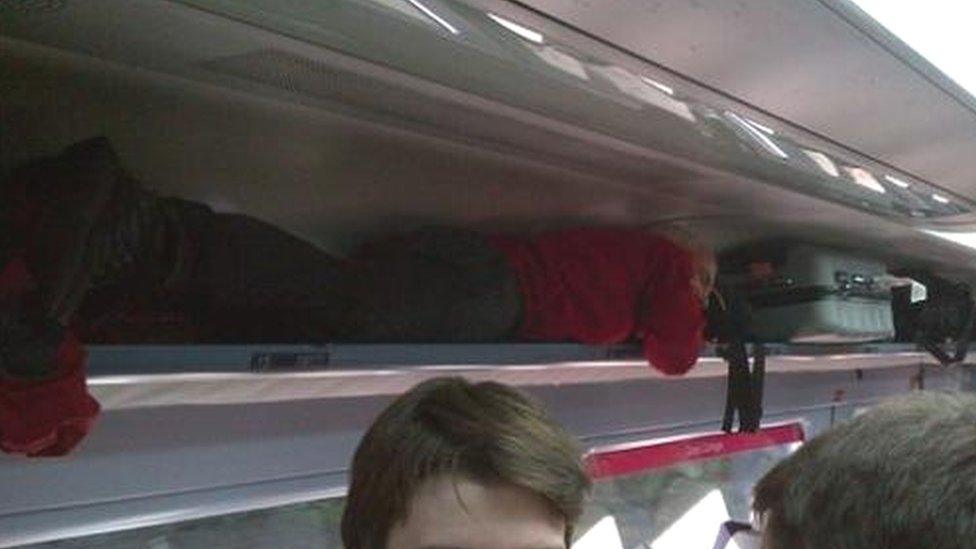
One man went to sleep in the train's luggage compartment
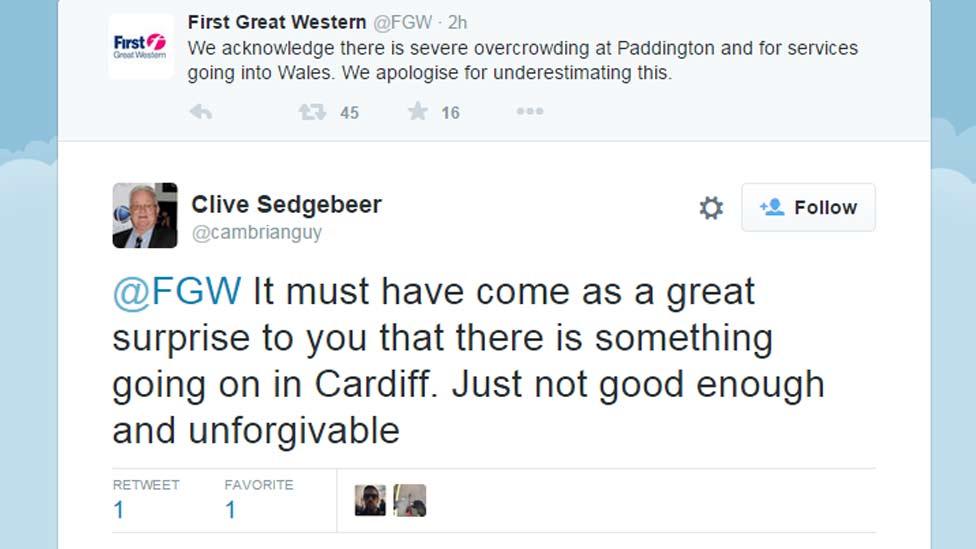
Apologies and frustrations: Tweets showing FGW's apology and comments aired by one traveller
In a statement First Great Western said: "We're sorry for anyone caught up on busy services ahead of today's match at the Millennium Stadium.
"Although we warned customers services were likely to be very busy and to travel early, the number of people wishing to travel is slightly higher than predicted, and passenger numbers have been less evenly spread throughout the day than we would normally expect."
It added it would be reviewing arrangements for future rugby events during the World Cup but said there was a "limit to what we can provide without impacting other customers".
National Rail had asked rail users to allow extra time to travel.
It said Paddington, Reading, Swindon and Bristol Parkway were all busier than normal.

Passengers wait on the platform at Filton Abbey Wood station
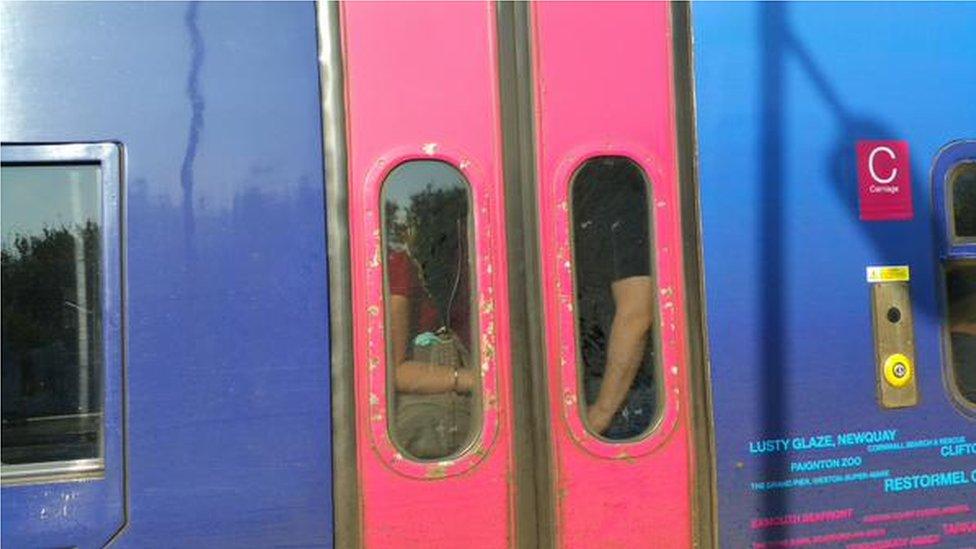
Passengers have been tweeting pictures of overcrowding
Meanwhile, rugby fans were out enjoying Cardiff ahead of the first of eight fixtures at the Millennium Stadium.
Ireland got off to a flying start, beating Canada 50-7 on Saturday. On Sunday Wales will take on Uruguay.
Up to 8,000 rugby fans were expected at the Rugby World Cup Fanzone at Cardiff Arms Park on Saturday.
Denise Toolan from County Wicklow, Ireland, said: "It's fabulous. The people are so friendly. It's a really good experience and the Welsh are like the Irish - very welcoming."
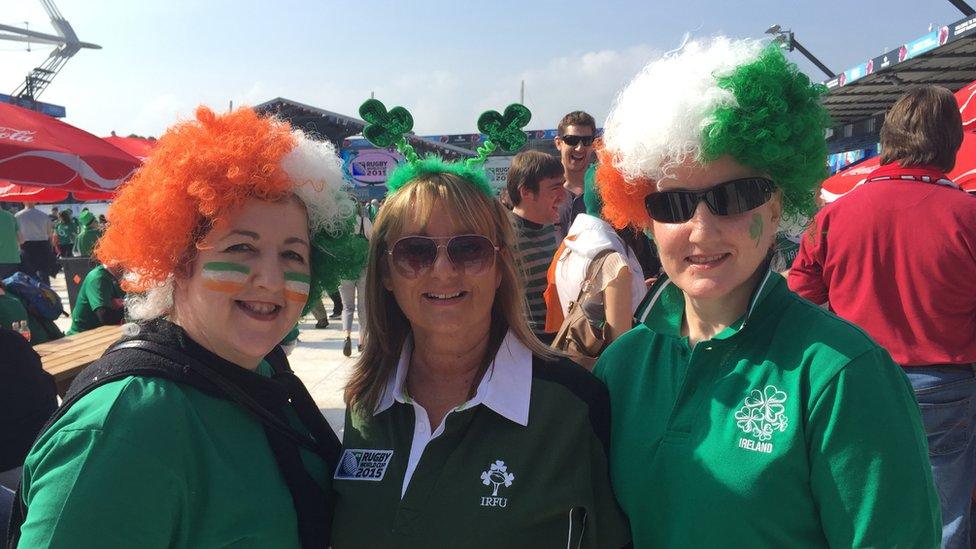
Martina Toolan (l) and Caroline Toolan (r) from Birmingham and Denise Toolan (c) from County Wicklow, Ireland, have travelled to Cardiff for the game
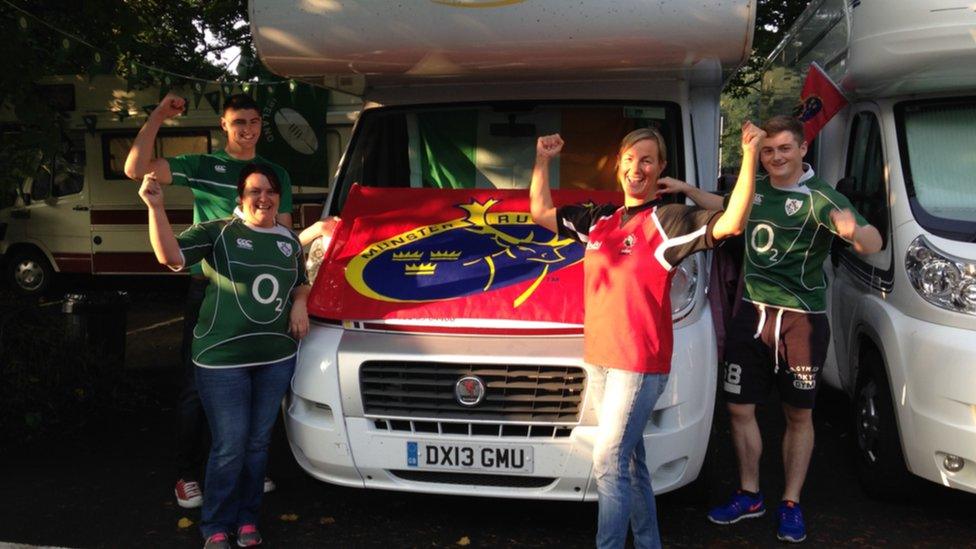
Ireland fans camped at Llandaff rugby club, Cardiff, on Friday ahead of the game
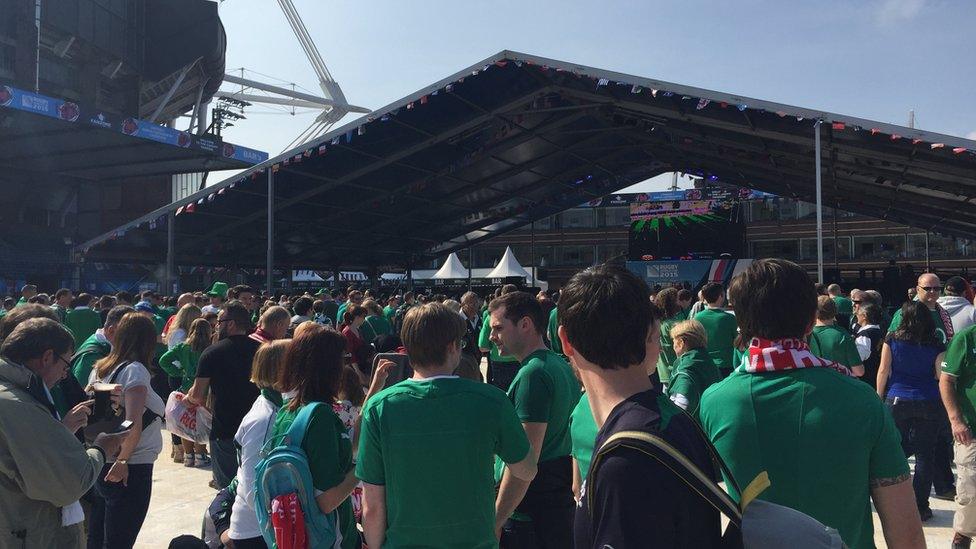
Rugby fans in Cardiff ahead of the game


- Published18 September 2015
